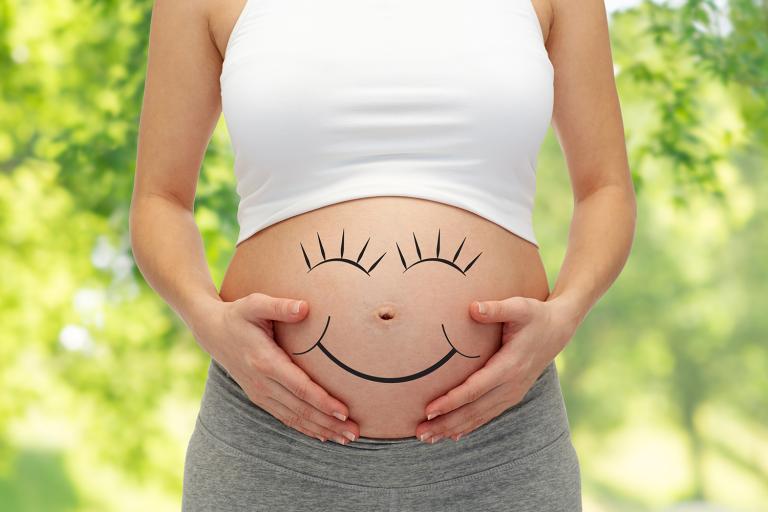Do you remember the moment you learned you were pregnant?
After the period of awe passes, pregnancy is the perfect time to commit to eliminating harmful chemicals from your food, home, and personal care products.
Making your daily routines as healthy as possible during pregnancy will not only make you feel better, it will go a long way toward protecting your growing baby from BPA, mercury, phthalates and more—all of which have been found in the bodies of pregnant women.
Cleaning up your daily routines now is good practice for creating a healthy home environment for your newborn, who will be vulnerable to the harmful substances found in everyday products.
Over the years, Healthy Child has gathered some excellent pregnancy advice from our experts and friends, including the Environmental Working Group (EWG).
Staying Healthy and Natural During Pregnancy
Consider these tips for a greener, healthier pregnancy.
-
Avoid Pesticides
Studies have shown that a pregnant woman’s exposure to pesticides poses risks similar to those associated with smoking.
- Minimize exposure to pesticide residue on fruits and vegetables by reading up on EWG's Dirty Dozen and Clean 15 before heading to the market.
- When gardening or dealing with things like insects or mice indoors, opt for organic or natural pesticides.
-
Watch Your Intake of Animal Fats
Harmful substances like PCBs as well as pesticide residue accumulate in fat tissue. This means when you eat seafood, meat, and poultry you’re also ingesting these chemicals.
To minimize intake, choose seafood known to be low in contaminants and low-fat options (trimming the fat from fish and meat helps). Organic or pastured meat and wild seafood are best bets whenever possible.
-
Be Smart About Plastics
Plastics can be harmful, especially when it comes to developing babies.
-
Vinyl (PVC)
The worst is PVC, which contains hormone disrupting chemicals called phthalates to make it soft and flexible.
PVC is used for everything from shower curtain liners to cling wrap.
Thankfully it’s fairly easy to avoid when pregnant—and beyond.
-
Bisphenol A (BPA)
Minimizing exposure to plastics containing another hormone disrupter, BPA, is also a good idea.
- BPA is found in some water bottles—keep an eye out for the number 7 in the recycling arrows on the bottoms of plastic containers.
- BPA can also be found in cash register receipts and canned foods.
-
-
Ditch the Toxic Cleaners
Newsflash: scouring your counters, tubs, and floors with toxic chemicals doesn’t make them cleaner. It just covers them with nasty chemical residues.
Cleaning product formulas are currently government protected as trade secrets so it’s hard to read labels to know what you’re getting.
Generally speaking, it’s common sense to avoid products with warnings labels like “hazardous” “poison” and “danger.”
Instead, choose plant-based cleaners from companies that disclose their natural ingredients.
Try Making Them Yourself
It’s also easy to make DIY tub scrubs and more. All you need is hydrogen peroxide, baking soda, plant-based dish soap, and some elbow grease.
-
Choose Safer Cosmetics
How many personal care products do you use on your body daily? Don’t know? According to EWG, it’s likely to be 10 products containing as many as 126 unique chemicals!
Lotions, creams, shampoos, soaps, lip balms, and more can contain chemicals that interfere with baby’s development. Pregnancy is the perfect time to start a new personal care regime with safer products. Read labels to avoid harmful chemicals like phthalates, parabens, and triclosan.
Look to EWG’s Skin Deep cosmetics database to shop healthy.
-
Relax Naturally
Rubbing lavender cream onto the legs before bedtime significantly reduced anxiety, stress, and depression in pregnant women, according to a 2015 study.
- The women applied the cream for 10 to 20 minutes each night for eight weeks.
- Some of the women also included a warm foot bath in their nightly routine.
- The women were 25 to 28 weeks pregnant at the start of the trial.
Maternal anxiety, stress, and depression can have negative effects on both the pregnant mother and her child.

